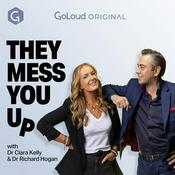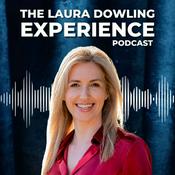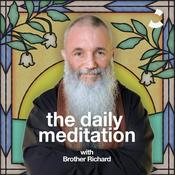23 episodes
- Artificial intelligence is no longer a future concept in eye care — it’s already influencing how we image, diagnose and think about disease.
In this episode of Eyes on Tomorrow, we were joined by Pearse Keane, Professor of Artificial Medical Intelligence at UCL and Consultant Ophthalmologist at Moorfields Eye Hospital.
Susbcribe to get further updates, exclusive content and access to the newsletter: Subscribe here!
We discuss:
• How #AI is being validated and used in real-world retinal practice
• What advanced OCT analysis means for clinical decision-making
• The emergence of Oculomics and why eye data may tell us far more than we think
• How clinicians should engage with AI — critically, safely and pragmatically
This is a practical, grounded conversation for optometrists, ophthalmologists and eye-care leaders navigating where innovation meets everyday clinical care.
▶️ Watch the full episode now
#EyesOnTomorrow #Ophthalmology #Optometry #MedicalAI #OCT #RetinalImaging #DigitalOphthalmology #FutureOfEyeCare #ClinicalInnovation
This is a public episode. If you'd like to discuss this with other subscribers or get access to bonus episodes, visit eyesontomorrow.substack.com/subscribe - In 1964, Captain James T. Kirk set the tone for a generation when he declared: “Space—the final frontier….to explore strange new worlds…. to boldly go where no man has gone before.” Today, that spirit of exploration has found a new frontier — not in space, but in the human eye.
In this episode of Eyes on Tomorrow, we’re joined by Professor Pearse Keane, Professor of Artificial Medical Intelligence at UCL. Like a modern-day Captain Kirk, Pearse is leading ophthalmology on a voyage of discovery, using AI to take us to truly “strange new worlds” — and revealing what the retina can tell us about our risk of systemic disease.
Pearse explains why ophthalmology is uniquely placed to ride the AI wave, and how a speculative LinkedIn message sparked a collaboration with Mustafa Suleyman that led to the groundbreaking partnership between Moorfields Eye Hospital and Google DeepMind.
We explore the rise of oculomics, from predicting age and sex using a single colour fundus photograph, to using large language models and retinal imaging to stratify risk for cardiovascular and neurological disease. We also tackle the ethical challenges this technology raises, including data protection, and look ahead to how AI will bring optometrists, primary care doctors, and hospital specialists closer together than ever before.
It may sound like science fiction, but this is science fact. This conversation offers a glimpse into a “brave new world” that’s closer than we think.
Bonus subscriber content
In this month’s bonus episode Pearse discusses RETFound, the first foundation model in medicine, capable of predicting myocardial infarction, heart failure, and ischaemic stroke from unlabelled retinal images. Pearse tells us how, by making this AI open-source, it is democratising access to this transformative technology.
Get access to this Bonus episode, along with a host of CPD resources, when you subscribe for only £25 per year at eyesontomorrow.substack.com/subscribe.
Eyes on Tomorrow is supported by Topcon Healthcare and Thea UK.
Produced by Matt Hill at Rethink Audio.
This is a public episode. If you'd like to discuss this with other subscribers or get access to bonus episodes, visit eyesontomorrow.substack.com/subscribe Christmas Special: How is DEWS III going to change your practice? With Sarah Farrant
12/12/2025 | 48 mins.This festive episode, we’re joined by friend of the podcast Sarah Farrant for a fast-paced, clinically focused deep dive into DEWS III and what it really means for the way you manage Dry Eye Disease.
From the game-changing new definition of DED — where symptoms truly matter — to why blue light therapy is now a core part of care, Sarah cuts through the noise and delivers insights you can take straight into practice. We also unpack the emerging evidence around Demodex as a bacterial “vehicle”, the growing importance of systemic inflammation, and why meibomian gland imaging can reveal disease a decade before patients ever complain of symptoms.
Eyes on tomorrow is supported by Topcon Healthcare and Thea UK.
Produced by Matt Hill at Rethink Audio.
----------
Bonus episode for subscribers: This month Sarah shares her real-world decision-making when designing personalised lubricant and lid hygiene regimes, the expanding role of Blephaderm in periocular erythema, practical tips for building a successful dry eye clinic, and why full-face low-level light therapy is delivering results that rival blepharoplasty surgery.
Pull up a mince pie, press play, and get ready to rethink dry eye.
This, along with a host of CPD resources, all for just £25 per year when you subscribe at eyesontomorrow.substack.com/subscribe.
This is a public episode. If you'd like to discuss this with other subscribers or get access to bonus episodes, visit eyesontomorrow.substack.com/subscribe- This is ophthalmic history told by the man who lived it. Settle in.
In this special episode of Eyes on Tomorrow, we’re celebrating a true giant of Irish ophthalmology. For the first time we recorded in front of a live audience, joined by none other than Mr Patrick “Paddy” Condon, widely regarded as the Founding Father of modern ophthalmology in Ireland. Paddy’s impact runs deep: he helped pioneer cataract and refractive surgery, played a central role in the creation of UKISCRS and ESCRS, and spent decades improving paediatric eye care across the country. He even recruited four Irish Presidents to support his mission to reduce workplace and sporting eye injuries. And he’ll also explain how he once ended up playing football with Colonel Gaddafi’s children in their garden in Libya.
Eyes on tomorrow is supported by Topcon Healthcare and Thea UK.
Produced by Matt Hill at Rethink Audio.
—
For subscribers, this month’s bonus episode is a treasure trove for anyone curious about the evolution of cataract surgery. Paddy shares the surprising origins of the Ridley and Duke-Elder feud, long before the first intraocular lens was implanted. He takes us through the early days of modern microsurgery, his friendships with Charlie Kelman, Eric Arnott, and other pioneers, and gives candid insight into why institutions like Moorfields resisted IOL implantation and phacoemulsification.
This, along with a host of CPD resources, all for just £25 per year when you subscribe at eyesontomorrow.substack.com/subscribe
.
This is a public episode. If you'd like to discuss this with other subscribers or get access to bonus episodes, visit eyesontomorrow.substack.com/subscribe World Sight Day Special: The Gender Lens - improving access to ophthalmic care for women and girls.
09/10/2025 | 1h 3 mins.When it comes to vision, inequality is still in sharp focus. So this World Sight Day, we’re putting a gender lens on the fight against avoidable blindness.
By 2050, 112 million more women and girls will lose their sight unnecessarily. Today, two-thirds of blind children are girls, and 55% of people with visual impairment are women. Yet, while 70% of global healthcare workers are women, three-quarters of leadership roles are held by men.
So, how do we change the picture?
In this episode, Rose Namukwai and Kate Gannon from Orbis share how they’re breaking barriers — training trusted local women screeners, educating traditional healers, building male allyship, and launching Women-Led Green Vision Centres that have boosted attendance of women and girls by 20%. They’re also empowering women tea-pickers with near glasses that increase their productivity and wages by 50%.
We’re also joined by Filomena Ribeiro, President of the ESCRS, who’s making gender equality a cornerstone of her presidency - supporting Eyes of the World projects in Africa and Bolivia, and ensuring women’s voices and expertise are represented on every panel and committee.
Because when women see better - the world sees better.
Eyes on tomorrow is supported by Topcon Healthcare and Thea UK.
And don’t miss our bonus subscriber episode, featuring moving stories from patients whose lives have been transformed by women-led eyecare. This, along with a host of CPD resources, all for just £25 per year when you subscribe at eyesontomorrow.substack.com/subscribe.
Produced by Matt Hill at Rethink Audio.
This is a public episode. If you'd like to discuss this with other subscribers or get access to bonus episodes, visit eyesontomorrow.substack.com/subscribe
More Health & Wellness podcasts
Trending Health & Wellness podcasts
About Eyes On Tomorrow
An Optometrist and an Ophthalmologist discuss - sometimes over a pint of Guinness - how these two previously fractious disciplines have been brought closer together. From different sides of the Irish border, John Ferris and Dermot Keogh know a thing or two about overcoming division.
Their guests bring extensive experience and expertise from across the two sectors: they share their passion for all things optical, discuss how the fields of Optometry and Ophthalmology can learn from each other, and the medical developments that are just over the horizon. eyesontomorrow.substack.com
Podcast websiteListen to Eyes On Tomorrow, Feel Better, Live More with Dr Rangan Chatterjee and many other podcasts from around the world with the radio.net app

Get the free radio.net app
- Stations and podcasts to bookmark
- Stream via Wi-Fi or Bluetooth
- Supports Carplay & Android Auto
- Many other app features
Get the free radio.net app
- Stations and podcasts to bookmark
- Stream via Wi-Fi or Bluetooth
- Supports Carplay & Android Auto
- Many other app features


Eyes On Tomorrow
Scan code,
download the app,
start listening.
download the app,
start listening.




































